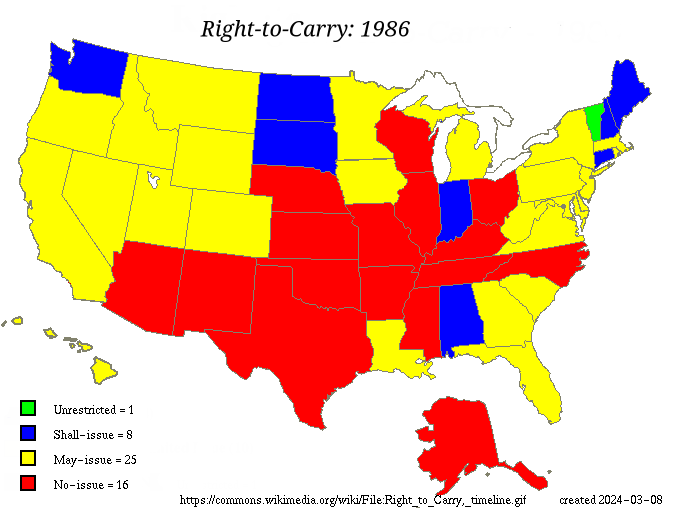On 23 June, 2020, the Oklahoma Supreme Court dealt another blow to the efforts by Democrat Jason Lowe and others to kill Constitutional Carry in Oklahoma.
Constitutional Carry is the right to carry a loaded handgun in most public spaces, concealed or openly. It is the state of law that existed when the Constitution was written and when the Bill of Rights was ratified.
On 27 February, 2019 Oklahoma Governor Kevin Stitt signed HB 2597 into law. Oklahoma became the 15th member of the Constitutional Carry club.
The bill had become very popular in the legislature. It had passed with veto proof majorities in the House, 70 to 30, and in the Senate 40 to 6.
It had been a long, hard, fight, with Governor Mary Fallin vetoing Constitutional Carry on 11 May, 2018.
Oklahoma law allows for a veto referendum to repeal bills passed by the legislature.
On 12 August, 2019, Democrat Jason Lowe, District 97, Oklahoma City, filed a petition for a veto referendum. It was only two weeks until the deadline to collect the signatures necessary.
Two weeks later, the signatures were filed, but fell far short of the number necessary to hold a veto referendum, with 37,057 signatures. 59,320 signatures were required. The referendum was dismissed by the Oklahoma Supreme Court on 7 October, 2019.
Jason Lowe and others then sought a temporary injunction the prevent Constitutional Carry from going into effect. The temporary injunction was denied by the district court. Lowe and others then applied for an emergency stay and temporary injunction. Those were denied by the Oklahoma Supreme Court on 31 October, 2019.
Lowe and others then filed initiative No. 425 to amend the Oklahoma Constitution to reverse the Constitutional Carry law, at least in part, on 3 February, 2020.
The Oklahoma Constitution grants broad initiative and referendum powers to the electorate. Oklahoma law requires the gist of the initiative (the statement of the changes being made and the effect on existing law), to be accurate to prevent fraud, deceit, or corruption of the initiative process.
Petition No. 425 was challenged by the Oklahoma Second Amendment Association (OK2A), on 21 February, 2020. The case went directly to the Oklahoma Supreme Court. On 10 March, 2020, the Oklahoma Attorney General filed a notice of intent, which resulted in a brief to the Supreme Court, generally supporting the OK2A position.
On 23 June, 2020, the Supreme Court of Oklahoma decided, in an opinion, that Initiative No. 425 violated the requirements for a gist that is free of misleading terms or deceitful language. From the opinion:
IV. CONCLUSION
¶28 The gist suggests a change to the law that is not being proposed, does not accurately explain the proposal's effect on existing law, and is misleading.
INITIATIVE PETITION NO. 425, STATE QUESTION NO. 809
IS DECLARED INVALID AND ORDERED STRICKEN FROM THE BALLOT
Seven judges concurred in favor of the opinion, one judge recused themselves from the opinion, and judge concurred in part and dissented in part. From
Whether this is an end to the ongoing attempts by Democrat Representative Lowe and others to end Constitutional Carry in Oklahoma remains to be seen.
Initiatives and referendums are expensive.
It is not clear who is paying the bill, and how much money they are willing to expend in these attempts to end Constitutional Carry in Oklahoma.
©2020 by Dean Weingarten: Permission to share is granted when this notice and link are included.
Gun Watch

What the map shows is there are still several states denying federally guaranteed rights. An American citizen has the right to travel any where in this country and exercise all of their federally guaranteed rights. States, under the tenth amendment, have no authority to infringe on federal rights. there are no valid state gun laws and there are no valid federal acts because acts are not ratified amendments. the reason the amendment process is in the constitution is to prevent government from changing any thing in the constitution without the permission of the citizens. It requires three quarters of the states to ratify an amendment. Right now that would be 37 states.
ReplyDelete